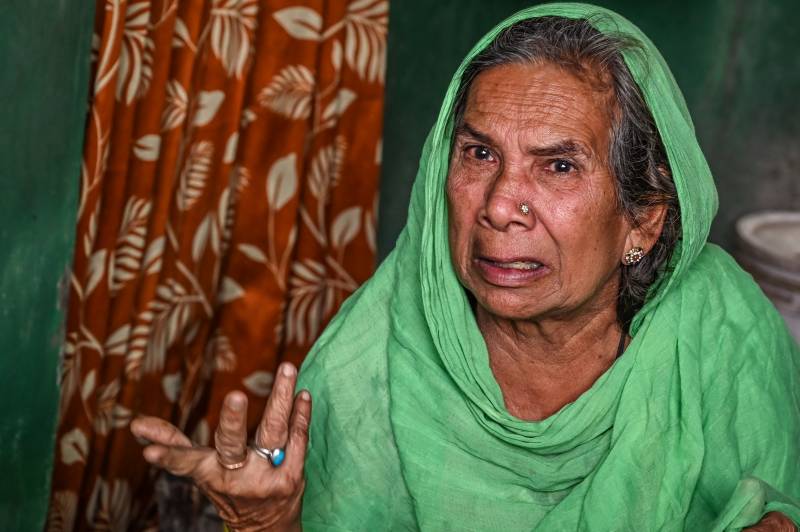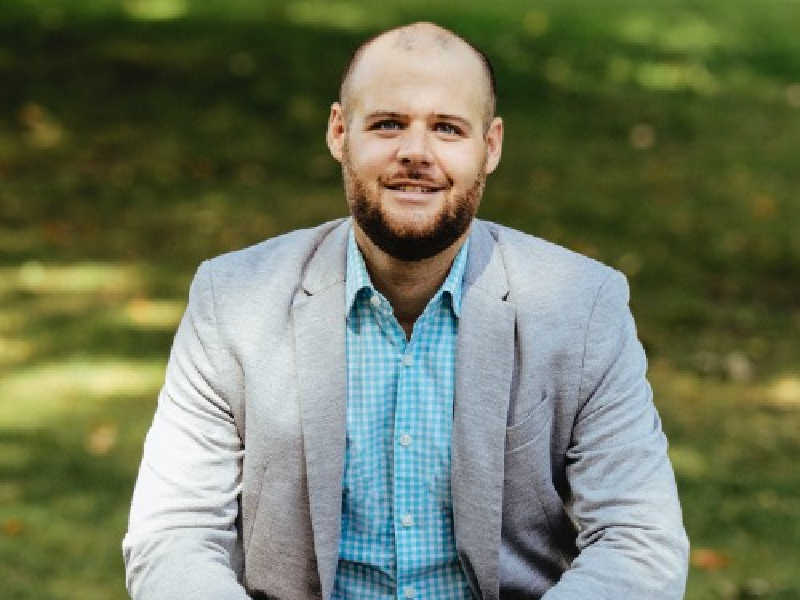
Smartphones infected with Pegasus are essentially turned into pocket spying devices (AFP/JOEL SAGET)
Wed, December 29, 2021, 2:24 PM·2 min read
Recent allegations that Pegasus spyware was used against three Polish government opponents are likely the "tip of the iceberg," said a cyber expert Wednesday who helped identify the phone taps.
Evidence of the hacking, which has become a major scandal in Poland, was reported by the Canada-based cyber-security watchdog Citizen Lab.
"We think this is just the tip of the iceberg and there'll be more discoveries to come," John Scott-Railton, a senior researcher with the group, told AFP.
"It's shocking and it looks very bad," he said. "Pegasus is a tool of dictators. Its use in these cases point to an authoritarian slide" in Poland.
Smartphones infected with Pegasus are essentially turned into pocket spying devices, allowing the user to read the target's messages, look through their photos, track their location, and even turn on their camera without their knowledge.
One of the victims, lawyer Roman Giertych, who is involved in several cases against the ruling Law and Justice (PiS) party, told Polish daily Gazeta Wyborcza that the government was using the spyware "to fight the democratic opposition."
Ewa Wrzosek, a prosecutor and opposition figure, also said the spyware had been used against her, adding that she was first alerted by Apple.
Scott-Railton confirmed Wednesday that Citizen Lab had also advised Senator Krzysztof Brejza of the opposition party Civic Platform, that his smartphone was repeatedly infected over a six-month period during the 2019 election.
"Their lives were under close monitoring -- this was very invasive," Scott-Railton said.
The hacking allegations have been dubbed by Polish media as a "Polish Watergate" -- referring to the scandal that emerged after former US president Richard Nixon's reelection campaign, which ultimately led to his resignation in 1974.
Poland has rejected accusations that it had used Pegasus spyware for political ends.
But Stanislaw Zaryn, spokesman for the ministry in charge of the country's secret services, did not confirm or deny if Poland used Pegasus.
The NSO Group, the Israeli owner of Pegasus, told AFP it is sold "only to legitimate law enforcement agencies who use these systems under warrants to fight criminals, terrorists and corruption."
In July, controversy erupted around Pegasus, after a collaborative investigation by several media outlets reported that governments used Pegasus to spy on activists, journalists, lawyers and politicians.
US authorities last month blacklisted NSO by restricting exports to it from American groups over allegations the Israeli firm "enabled foreign governments to conduct transnational repression."
Polish opposition leader Donald Tusk on Tuesday said recent reports that the government spied on its opponents represented the country's biggest "crisis for democracy" since the end of communism.
Tusk, a former EU Council president, also called for a parliamentary inquiry into the allegations.
amc/des/bfm
Polish prosecutors decline to investigate phone hacking allegation

The logo of Israeli cyber firm NSO Group is seen at one of

The logo of Israeli cyber firm NSO Group is seen at one of
its branches in the Arava Desert, southern Israel
Wed, December 29, 2021, 9:54 AM·2 min read
WARSAW (Reuters) - Polish prosecutors said on Wednesday they would not investigate an allegation that the phone of a high-profile government critic was hacked, amid accusations that opposition figures have been subject to illegal surveillance.
Reports that sophisticated spyware developed by the Israel-based NSO Group had been used against government opponents including prosecutor Ewa Wrzosek have led to accusations that special services are undermining democratic norms.
Wrzosek, a member of the group Lex Super Omnia which campaigns against what it says is the politicisation of the public prosecution service under the Law and Justice (PiS) party, received a notification in November from Apple that her phone could have been hacked using NSO Group's Pegasus software.
This month, the Associated Press reported that the Citizen Lab project at the University of Toronto found Wrzosek was one of three Polish government critics whose phones had been hacked.
"The only indication that a cyberattack could have occurred ... was a message from the telephone's manufacturer," Aleksandra Skrzyniarz, spokeswoman for the District Prosecutor's Office in Warsaw, said in a statement explaining the refusal to investigate the case.
"However, the message did not categorically state that a cyberattack had occurred, but contained a disclaimer that the alert might be false," Skrzyniarz said, adding that Wrzosek had refused to hand over the phone for examination.
Wrzosek told private broadcaster TVN24 that she would appeal against the decision.
"I do not see the slightest legal prerequisite or justification for the decision to refuse to initiate this procedure," she said.
Polish security services do not comment on the methods they use or whether they have investigated particular people. However, spokesman Stanislaw Zaryn has denied any suggestion that Polish services were engaged in domestic political battles.
Prime Minister Mateusz Morawiecki has dismissed suggestions that spyware was used by Polish services against opposition figures as "fake news".
NSO says it makes technology for use by governments and law enforcement agencies to combat crime and terrorism, and has safeguards to prevent misuse.
Digital rights researchers say Pegasus has been used to spy on civil society in several countries.
(Reporting by Alan Charlish and Anna Koper; Editing by Giles Elgood)
Wed, December 29, 2021, 9:54 AM·2 min read
WARSAW (Reuters) - Polish prosecutors said on Wednesday they would not investigate an allegation that the phone of a high-profile government critic was hacked, amid accusations that opposition figures have been subject to illegal surveillance.
Reports that sophisticated spyware developed by the Israel-based NSO Group had been used against government opponents including prosecutor Ewa Wrzosek have led to accusations that special services are undermining democratic norms.
Wrzosek, a member of the group Lex Super Omnia which campaigns against what it says is the politicisation of the public prosecution service under the Law and Justice (PiS) party, received a notification in November from Apple that her phone could have been hacked using NSO Group's Pegasus software.
This month, the Associated Press reported that the Citizen Lab project at the University of Toronto found Wrzosek was one of three Polish government critics whose phones had been hacked.
"The only indication that a cyberattack could have occurred ... was a message from the telephone's manufacturer," Aleksandra Skrzyniarz, spokeswoman for the District Prosecutor's Office in Warsaw, said in a statement explaining the refusal to investigate the case.
"However, the message did not categorically state that a cyberattack had occurred, but contained a disclaimer that the alert might be false," Skrzyniarz said, adding that Wrzosek had refused to hand over the phone for examination.
Wrzosek told private broadcaster TVN24 that she would appeal against the decision.
"I do not see the slightest legal prerequisite or justification for the decision to refuse to initiate this procedure," she said.
Polish security services do not comment on the methods they use or whether they have investigated particular people. However, spokesman Stanislaw Zaryn has denied any suggestion that Polish services were engaged in domestic political battles.
Prime Minister Mateusz Morawiecki has dismissed suggestions that spyware was used by Polish services against opposition figures as "fake news".
NSO says it makes technology for use by governments and law enforcement agencies to combat crime and terrorism, and has safeguards to prevent misuse.
Digital rights researchers say Pegasus has been used to spy on civil society in several countries.
(Reporting by Alan Charlish and Anna Koper; Editing by Giles Elgood)
Tusk says hacking marks crisis of democracy in Poland

Donald Tusk, the leader of Poland's largest opposition party, Civic Platform, speaks to people joining a demonstration after the Polish parliament approved a bill that is widely viewed as an attack on media freedom, in Warsaw, Poland, Sunday Dec. 19, 2021. Poles flocked to city centers across the country to defend a U.S.-owned television network that is being targeted by the right-wing government. The protests Sunday evening are seeking to protect media freedom in a European Union nation where democratic norms are eroding. (AP Photo/Czarek Sokolowski)More
Tue, December 28, 2021
WARSAW, Poland (AP) — Donald Tusk, the leader of Poland's main opposition party, called Tuesday for the creation of a parliamentary commission to investigate surveillance after reports that powerful spyware was used against three people associated with the political opposition.
“This is an unprecedented thing in our history. This is the biggest and deepest crisis of democracy after 1989,” said Tusk, who served as Poland's prime minister from 2007-2014 and president of the European Council from 2014-2019.
He said that his party would apply for the establishment of a commission of inquiry in the Sejm, the lower house of parliament, to examine surveillance with Pegasus, spyware which is made by the NSO Group of Israel and sold only to government agencies.
The ruling Law and Justice party has a majority in the parliament and it wasn't immediately clear if Tusk would succeed in his bid.
He argued that it was in the interest of all political forces in Poland to clarify the situation, saying he believed that nobody wants to be eavesdropped on with impunity.
The hacking of three people with Pegasus was reported recently after a joint investigation by The Associated Press and Citizen Lab, a cyber watchdog at the University of Toronto.
The hacking targeted Krzysztof Brejza, an opposition senator, at a time that he was the party's election campaign chief of staff in 2019; Roman Giertych, a lawyer who has defended Tusk and several other opposition figures in sensitive cases; and Ewa Wrzosek, a prosecutor who is fighting for the independence of prosecutors as the ruling right-wing party seeks to impose political control over all branches of the judiciary.
Prime Minister Mateusz Morawiecki on Tuesday reiterated his accusation that the reports were “fake news.”
He said he had no knowledge of any surveillance but also suggested that if there had been any, it wouldn't necessarily have been the work of Polish intelligence services. He said there were other security services in the world, some of who are “not entirely friendly toward Poland” and “act very ruthless.”

Donald Tusk, the leader of Poland's largest opposition party, Civic Platform, speaks to people joining a demonstration after the Polish parliament approved a bill that is widely viewed as an attack on media freedom, in Warsaw, Poland, Sunday Dec. 19, 2021. Poles flocked to city centers across the country to defend a U.S.-owned television network that is being targeted by the right-wing government. The protests Sunday evening are seeking to protect media freedom in a European Union nation where democratic norms are eroding. (AP Photo/Czarek Sokolowski)More
Tue, December 28, 2021
WARSAW, Poland (AP) — Donald Tusk, the leader of Poland's main opposition party, called Tuesday for the creation of a parliamentary commission to investigate surveillance after reports that powerful spyware was used against three people associated with the political opposition.
“This is an unprecedented thing in our history. This is the biggest and deepest crisis of democracy after 1989,” said Tusk, who served as Poland's prime minister from 2007-2014 and president of the European Council from 2014-2019.
He said that his party would apply for the establishment of a commission of inquiry in the Sejm, the lower house of parliament, to examine surveillance with Pegasus, spyware which is made by the NSO Group of Israel and sold only to government agencies.
The ruling Law and Justice party has a majority in the parliament and it wasn't immediately clear if Tusk would succeed in his bid.
He argued that it was in the interest of all political forces in Poland to clarify the situation, saying he believed that nobody wants to be eavesdropped on with impunity.
The hacking of three people with Pegasus was reported recently after a joint investigation by The Associated Press and Citizen Lab, a cyber watchdog at the University of Toronto.
The hacking targeted Krzysztof Brejza, an opposition senator, at a time that he was the party's election campaign chief of staff in 2019; Roman Giertych, a lawyer who has defended Tusk and several other opposition figures in sensitive cases; and Ewa Wrzosek, a prosecutor who is fighting for the independence of prosecutors as the ruling right-wing party seeks to impose political control over all branches of the judiciary.
Prime Minister Mateusz Morawiecki on Tuesday reiterated his accusation that the reports were “fake news.”
He said he had no knowledge of any surveillance but also suggested that if there had been any, it wouldn't necessarily have been the work of Polish intelligence services. He said there were other security services in the world, some of who are “not entirely friendly toward Poland” and “act very ruthless.”













